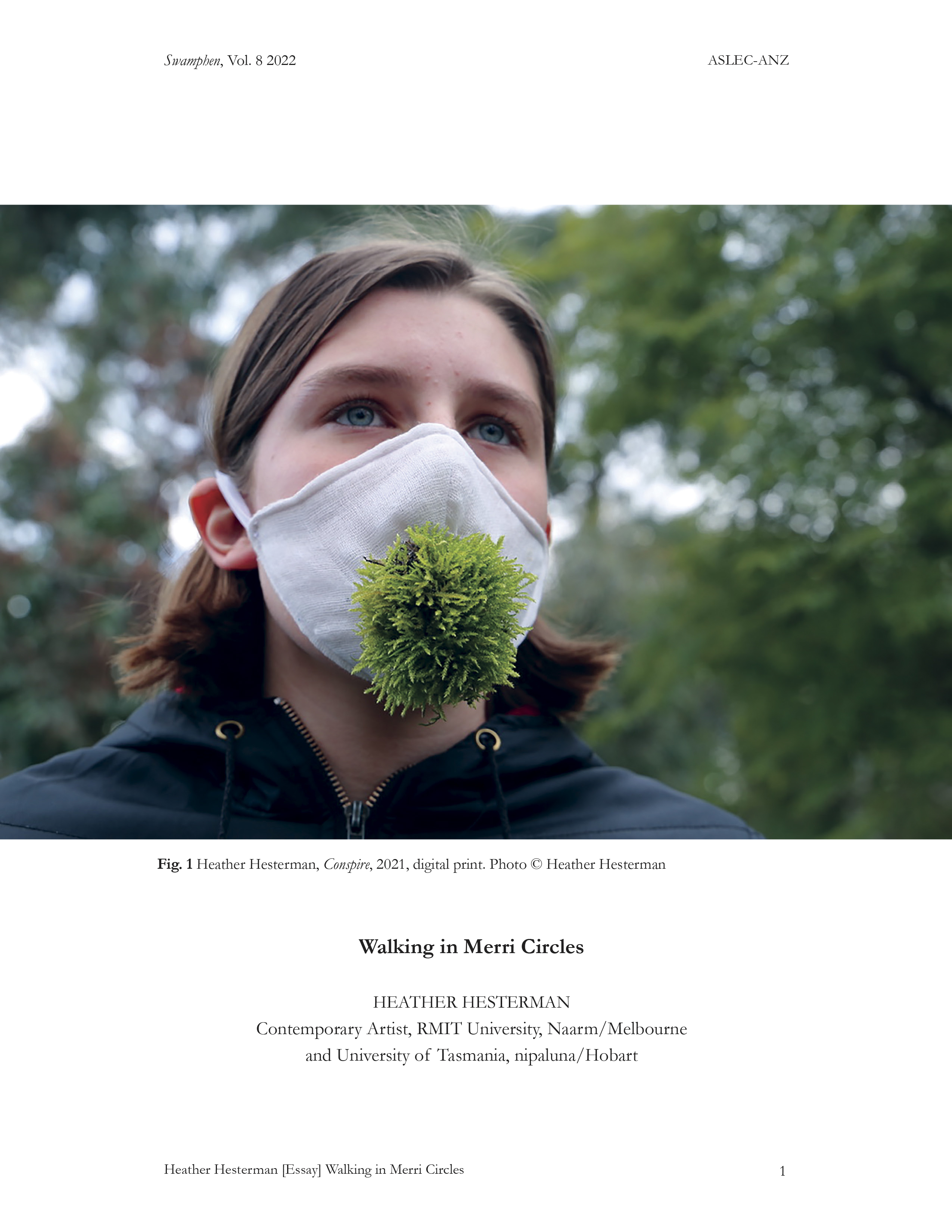Walking in Merri Circles
DOI:
https://doi.org/10.60162/swamphen.8.16691Keywords:
walking art, Merri Creek, COVID-19 lockdown, vegetal being, BioArt, Michael Marder, multispecies entanglement, weeds, ecological forgetting, Batman’s Treaty, video artAbstract
The weight of planetary problems is distressing, and the forgetting seems to have multiplied when I wasn’t looking. In late 2020, whilst a global pandemic is also multiplying with disastrous and tragic consequences, I get my mask on. I make sure my shoelaces are tied and tell my children who are studying remotely, or streaming with screens blazing unchecked, that I am disappearing for a walk along the Merri Creek. Walking for one hour and now two for exercise, as mandated by the Victorian State Government, has been an activity that propels people out of their houses. Walking has taken on new significance for Melburnians living in COVID-19 lockdown: exercise is a reason to legally leave your house and you are reminded as you put one foot in front of the other that you can walk five kilometres in any direction. Knowing that is a quiet freedom. We are enmeshed and complicit, in the way we are also entangled, unpredictable, clever, complex, stupid and amazing, just like other organisms. Every action has a consequence, no matter how big or small.

Downloads
Published
Issue
Section
License
Authors who publish with this journal agree to the following terms:- Authors retain copyright and grant the journal right of first publication with the work simultaneously licensed under a Creative Commons Attribution License that allows others to share the work with an acknowledgement of the work's authorship and initial publication in this journal.
- Authors are able to enter into separate, additional contractual arrangements for the non-exclusive distribution of the journal's published version of the work (e.g., post it to an institutional repository or publish it in a book), with an acknowledgement of its initial publication in this journal.
- Authors are permitted and encouraged to post their work online (e.g., in institutional repositories or on their website) prior to and during the submission process, as it can lead to productive exchanges, as well as earlier and greater citation of published work (See The Effect of Open Access).
